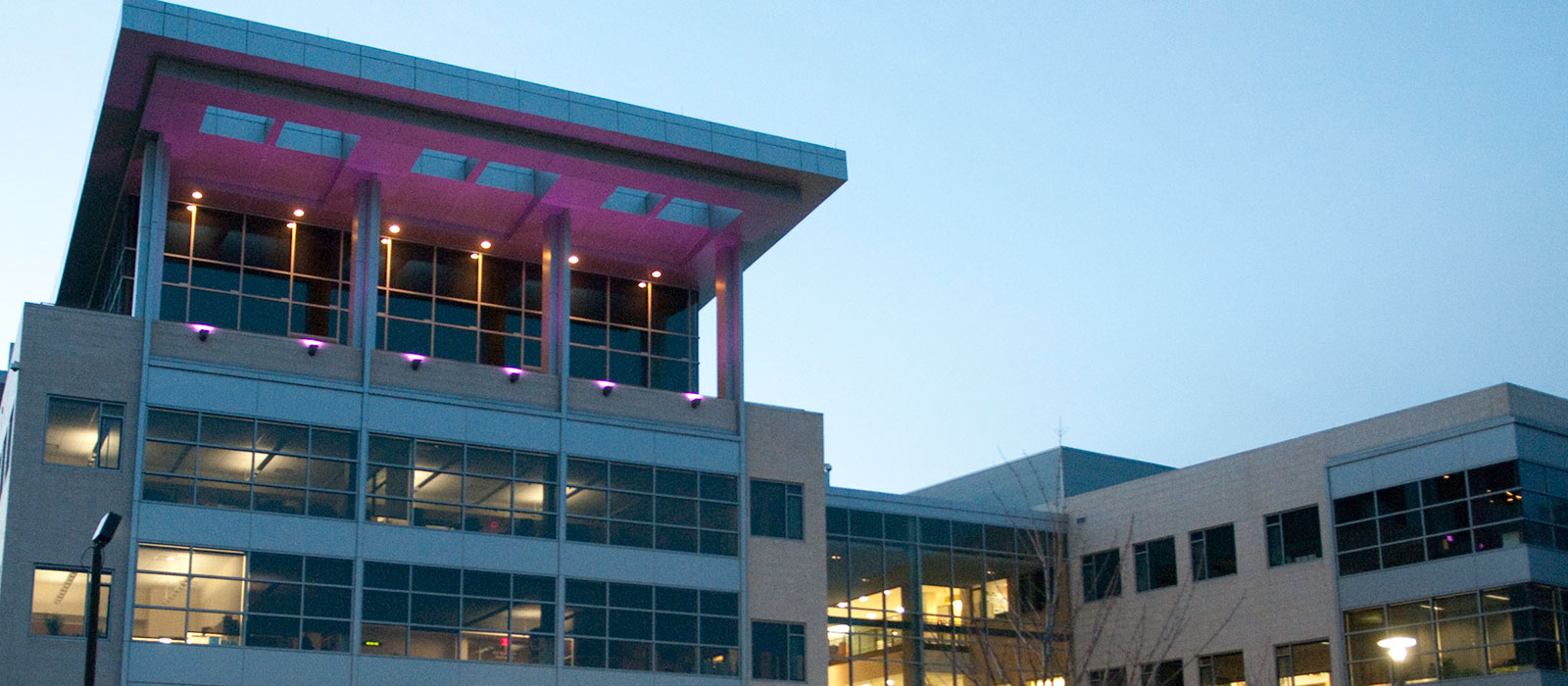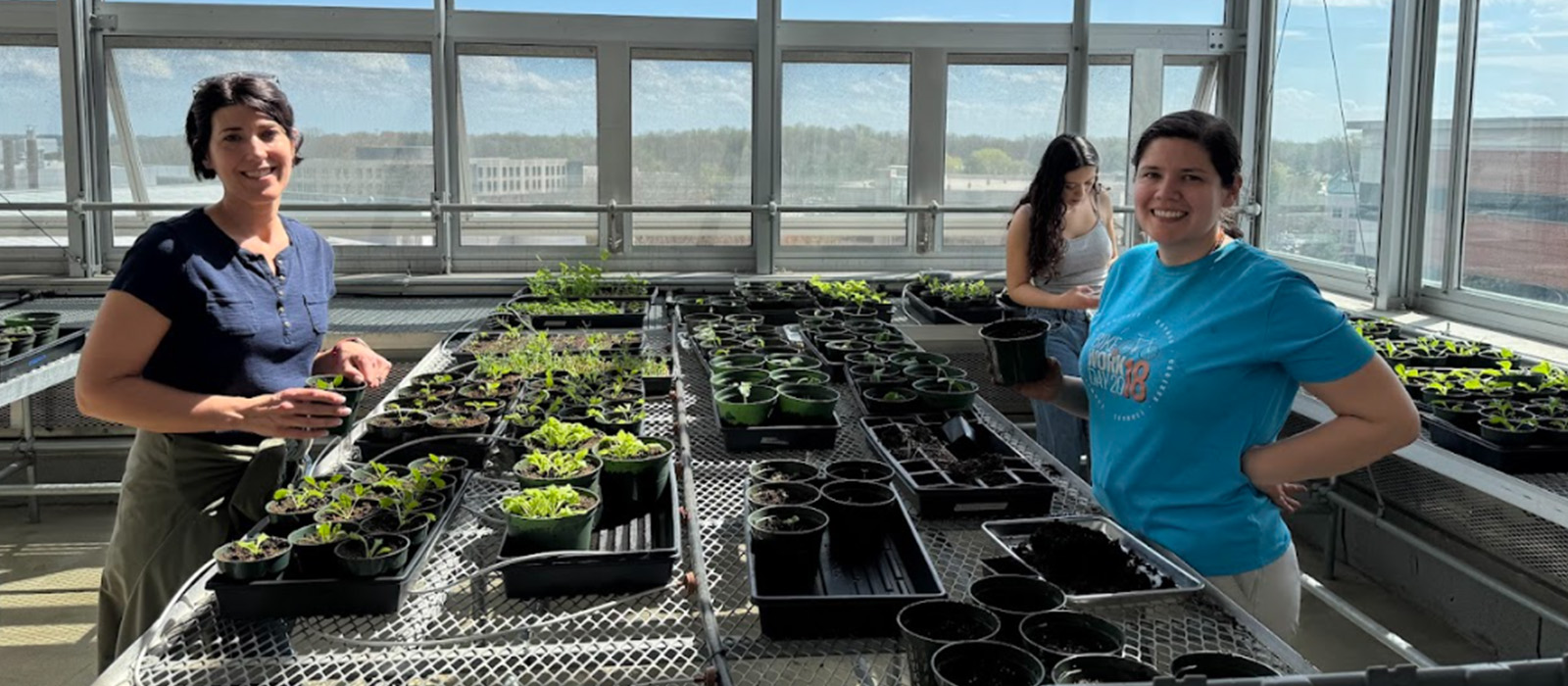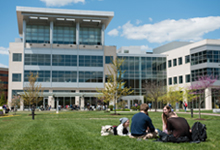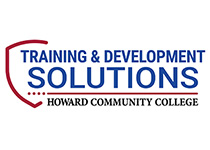
Faculty and Staff
 Howard Community College faculty and staff can get involved by integrating a community-engaged learning component into one of their courses or acting as an advisor on an Alternative Break Trip.
Howard Community College faculty and staff can get involved by integrating a community-engaged learning component into one of their courses or acting as an advisor on an Alternative Break Trip.
-
OverviewWhether it's through integrating an engagement component into a course or serving as an advisor on an Alternative Break Trip, we welcome faculty and staff participation in our programs.
As a high-impact practice, community-engaged learning features three main components: preparation, action, and reflection. Action can include direct service, indirect service, community education, and episodic or shared service. All three components working together help students develop a deeper understanding of course content and an enhanced feeling of civic responsibility.
According to a study conducted by the American Association of Community Colleges, students who participated in service or community-engaged learning scored statistically higher in five dominant learning outcome areas including critical thinking, communication, career and teamwork, civic responsibility, and academic development and educational success. At HCC, class sections that feature a civic or community-engaged integration routinely experience higher student success and lower student withdrawal rates than the course average.
Interested in incorporating a civic and community engagement component into your course? Learn more about integration strategies and how to submit an integration request on the other tabs found on this page.
-
Course Integrations
How can community-engaged learning be integrated into your course?
When proposing an integration, faculty need to first consider the learning objective they want to achieve. From there, faculty collaborate with CCCE staff members to choose an integration model and design the learning experience. The Center is prepared to support any of the following course integration models:
- Direct Service, Self-Select Placement: Students select a placement site from a list of course-approved community partners, complete a designated number of volunteer service hours and interact directly with the community.
- Direct Service, Episodic: As a class or small group, students volunteer with a community partner for one volunteer shift. Some courses may choose to use a series of different episodic experiences in order to best complement the course material.
- Indirect Service: As a class, students meet a designated community need by completing a specific project that is provided to or executed in collaboration with a community partner.
- Community Education: As a class, students educate the campus and/or community about a pivotal topic that meets community-identified needs.
-
Proposals
Ready to get started?
Submitting an integration proposal during the integration request period is the first step.
Calls for Integration Proposals
Proposal periods are announced via email to the faculty and adjunct faculty distribution lists and last approximately two weeks. Fall semester integration proposals are accepted in May and spring semester integration proposals are accepted in October. This cadence allows us to fully prepare to support and collaborate with our faculty partners. However, we understand that sometimes a new course or idea pops up, so please reach out if you want to discuss a new proposal outside of the regular timeline.
Selection Process
Proposals are reviewed and accepted in advance of each semester, and both new and continuing integrations should be submitted via proposal for each course. Many elements are considered in our review process, including the impact on student learning, potential to meet a community need, the staff/faculty resources required to support the project, the community voice, and the quality of proposed pedagogical practice. Faculty are contacted via email within one week of the submission deadline and may be asked to meet with CCCE to provide additional details about their desired integration.
Collaboration
After a proposal is accepted, the faculty member will work collaboratively with CCCE staff members to fully develop the community-engaged learning integration during the months leading up to the start of the semester. All course integration elements must be finalized no later than two weeks prior to the start of the academic term.



